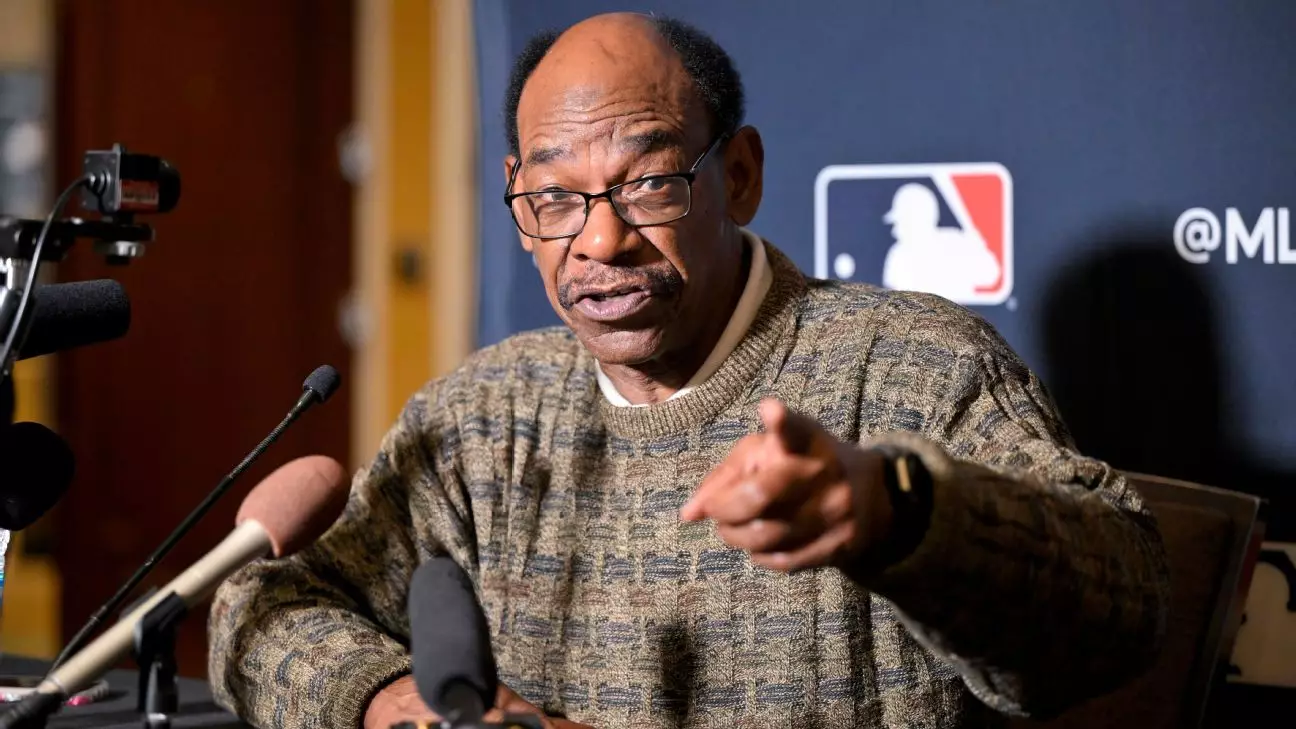The annual MLB winter meetings present a significant moment for the league, with a flurry of activity surrounding trades and free agency. Yet, amidst the fervor focused on player transactions, the insights and reflections of the managers, who are tasked with guiding their teams both on and off the field, deserve equal attention. As baseball continues to evolve, especially regarding new rule changes and playoff formats, the perspectives of skippers shed light on the driving forces behind the game’s future.
With the introduction of several new rules aimed at enhancing the pace of play and overall viewer experience, the reactions from managers have been largely positive. For instance, Dave Martinez of the Washington Nationals expressed his satisfaction with the current trajectory of the game. He believes that the adjustments, while initially met with skepticism, are ultimately fostering a more dynamic atmosphere that benefits both players and fans.
Conversely, Ron Washington of the Los Angeles Angels voiced concerns about the impact these changes might have on younger pitchers still finding their footing. His emphasis on allowing pitchers the time they need reflects a nuanced understanding of the game’s needs, highlighting the challenges that come with transitioning to a quicker-paced format. This strikingly lays bare the contrasting views within the league—while many embrace change, others call for caution, particularly regarding the mental and physical demands placed on emerging talent.
As teams vie for postseason berths, the managers were somewhat unified in their support for the current playoff format, which emphasizes wild card opportunities. Brandon Hyde of the Baltimore Orioles pointed out the improvement in competitive balance that this structure offers, allowing more teams to experience meaningful games late in the season. This sentiment was echoed by other managers, including Rocco Baldelli of the Minnesota Twins and A.J. Hinch of the Detroit Tigers, who praised the expanded playoff format as a means of maintaining fan engagement through September.
Yet, there are distinct concerns regarding how this has affected teams clinching the division early. Ron Washington and Derek Shelton highlighted the potential pitfalls of having teams miss out on competitive play while the playoffs unfold—an issue that could deflate the spirits of top performers who sit idle during crucial playoff races. Indeed, there exists a delicate balance between incentivizing competitiveness across the league and ensuring that division champions retain their edge.
When queried about the hitters they most dread facing, managers provided a mix of awe and respect for top talents like Shohei Ohtani, Juan Soto, and Aaron Judge. Each response not only reflects the individual prowess of these players but also underscores a broader admiration for their impact on the game. This collective experience among managers aims to highlight how certain players can alter the dynamic of a game single-handedly, driving home the point that managing in this league requires an intimate understanding of one’s opponents.
The respect afforded to these hitters also reveals the strategic layers involved in gameplay. For instance, managers expressed how these top sluggers force pitchers to adapt their strategies and maintain precision, further emphasizing their dominance within the game. The recognition of the mental games at play—particularly in pitch selection and defensive strategies—indicates a thoughtful approach to management.
As these conversations unveil the complexity within Major League Baseball, one cannot help but appreciate the roles that managers play in shaping the future. The blend of traditional values with the need for modern evolution challenges managers to adapt continually, balancing the intricacies of player management with the relentless push for performance enhancement.
The opinions aired during the winter meetings not only express the current climate of inclination toward reform but also suggest a thoughtful consideration of what makes baseball uniquely compelling. Managers like Terry Francona emphasize a holistic view of the game, advocating for strategies that leverage the strengths of an entire roster rather than relying solely on standout talent, which is paramount in today’s game.
The MLB winter meetings serve as a microcosm of the league’s ongoing evolution, encapsulating the challenges and opportunities that lie before baseball. Through a collaborative dialogue among managers, a path forward emerges—one that harmonizes the cherished traditions of the game with the evolving expectations of players and fans alike. As these discussions evolve, so too will the game, constantly adjusting to meet the demands of its dynamic landscape.


Leave a Reply